Trump’s Gaza vision undoes hope of ending foreign entanglements
Taking control of the hotly contested territory would put the US at the centre of the world’s most complicated diplomatic and national security conflicts.
President Trump campaigned on shrinking America’s role abroad. But since taking office, he has articulated a worldview that is at times closer to expansionism than isolationism.
Trump generated global shockwaves Tuesday when he said the US should take long-term control of Gaza, suggesting that Palestinians should be relocated while the enclave is rebuilt into the “Riviera of the Middle East.”
Secretary of State Marco Rubio wrote on social media that Trump would “Make Gaza Beautiful Again”.
Taking control of the hotly contested territory would put the US at the centre of the world’s most complicated diplomatic and national security conflicts, raising the prospect that Trump is signing the country up for exactly the kind of foreign entanglement he told voters he would avoid.
Trump didn’t rule out sending American troops to Gaza to accomplish his goals.
“The old Republican Party of RINOs, neocons and globalists is gone. And it is never coming back,” Trump said at a 2023 GOP dinner in Florida.
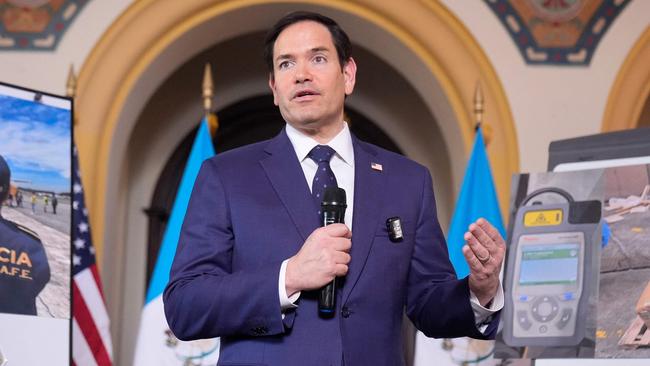
As he prepared to take office, Trump made clear that he wouldn’t hire national security officials that he deemed to be too closely associated with traditional neoconservative values.
Tuesday’s announcement marked a striking shift for Trump, who described the Middle East as “blood and sand” in his first term, according to a longtime adviser.
Trump is now proposing to rebuild Gaza, which his own aides say could take 10 to 15 years.
Two Trump administration officials said the idea of the Gaza takeover was formed recently, with the president running it by aides and allies in recent days.
The proposal was closely held, other administration officials who work on Middle East issues said. Officials outside of Trump’s inner circle weren’t aware the idea was on the table during days of planning for the meeting with Israeli Prime Minister Benjamin Netanyahu.
Trump’s proposal stunned even some of his most ardent and influential supporters in the Jewish community.
A longtime pro-Israel Trump fundraiser who has raised money for the president for years called the idea “insane” and questioned how it could be executed, noting this type of policy would likely take well over a year to complete with too many unknown variables for it to be done smoothly.
Netanyahu said during the press conference that one of his key goals was to ensure Gaza wouldn’t host terrorists again.
Trump, he continued, took that concept “to a much higher level”.
“It is something that could change history, and it is worthwhile really pursuing this avenue.”
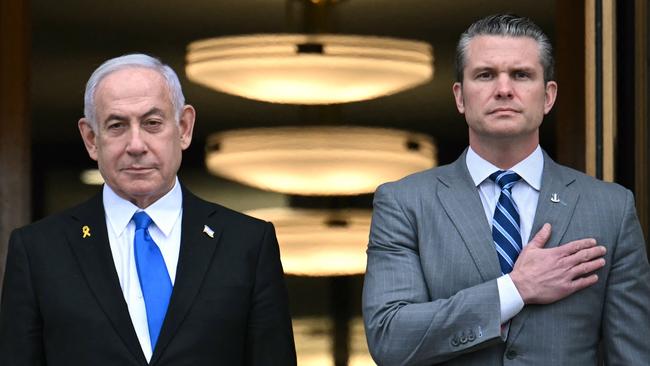
Even as he seeks to expand America’s footprint abroad, Trump has pursued an “America First” agenda that seeks to bolster domestic manufacturing by imposing stiff tariffs on US allies and adversaries.
Trump has frozen foreign aid and moved to gut the US Agency for International Development, arguing that the government is sending too much money abroad.
But the Gaza episode demonstrates the assertiveness with which Trump is approaching a second term, confident that his comfortable November victory provides the political cover to act on his gut instincts.
Already, he has set his sights on acquiring strategically important Greenland, has provoked a fight to wrest back control of the Panama Canal and has said Canada should become the 51st state.
An adviser to the president said that while some observers have dismissed his desire to take control of Greenland, the Panama Canal and other places, “he’s deadly serious about it”. Trump’s Gaza proposal also shows that the president is leaning on his long history as a businessman and real estate developer, viewing the world as a canvas in which to expand America’s influence – and cement his legacy.
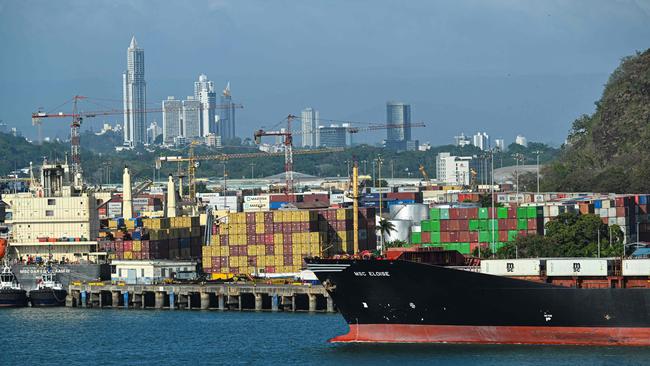
As Trump seeks to prevent a ban on Chinese-owned TikTok, he has proposed a deal in which the US takes an ownership stake in the business.
When he talks about the war in Ukraine, Trump laments the loss of many lives, including those of Russians, but also the destruction of beautiful cities.
Some veteran diplomats were perplexed by Trump’s plans for Gaza.
“It’s not a serious proposal,” said Dan Shapiro, US ambassador to Israel during the Obama administration. “If ever pursued, it would entail a massive cost in dollars and US troops, with no support from key regional partners.”
Glimmers of Trump’s thinking on Gaza have surfaced in public and in private.
“You know, Gaza’s interesting, it’s a phenomenal location, on the sea, the best weather. Everything’s good. Some beautiful things could be done with it,” Trump told reporters on January 20, after being sworn in.
A reporter asked if he would help with rebuilding. “I might,” Trump said.
Steve Witkoff, a real estate developer Trump tapped as his Middle East envoy, told the president after touring Gaza that it is basically uninhabitable after punishing Israeli strikes, questioning whether it was humane to allow people to live there before it’s rebuilt, Witkoff’s deputy said during a television interview.
“The killing must stop, the war must end, and we must realise lasting PEACE,” Taylor Budowich, a top adviser to Trump, wrote on X following the remarks.
“That’s why the United States will work with Israel to secure Gaza and find a lasting home for the Palestinian people.”
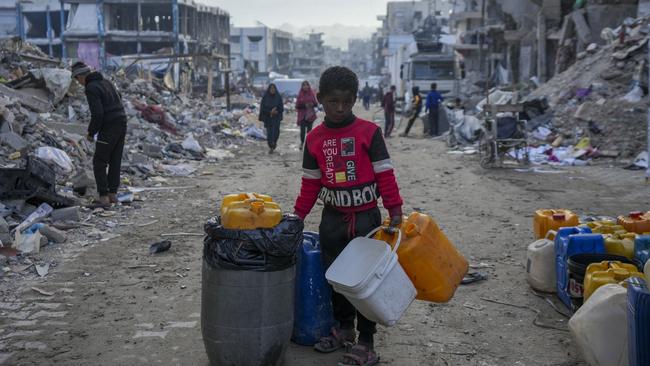
In late summer, Trump told Netanyahu in a phone call that the Gaza Strip was a prime piece of real estate and asked him to think about what kinds of hotels could be built there, according to a person with direct knowledge of the conversation.
But he didn’t mention the US taking it over.
He also told Ukrainian President Volodymyr Zelensky this fall that Ukraine would be a good spot for real estate development, particularly mentioning the city of Odesa, a person present during the discussion said.
Trump made a similar case to North Korean leader Kim Jong-un during his first term, hoping the allure of hotels and development along the country’s coastlines would encourage Kim to dismantle his nuclear arsenal.
Trump often speaks about foreign policy in real estate terms, as he did at a recent campaign fundraiser in reference to his 2019 decision to endorse Israeli sovereignty over the Golan Heights.
“So I did Golan Heights. You know that’s worth $2 trillion, they said, that piece, if you put it in real estate terms. But it is worth more than that,” Trump told donors at a fundraiser in New York last summer, according to audio of his remarks reviewed by The Wall Street Journal.
Trump’s son-in-law, Jared Kushner, who worked on Middle East policy in Trump’s first term, also sized up Gaza from a development perspective, telling a Harvard professor in February 2024 that Gaza’s waterfront property “could be very valuable”.
He added: “If you think about all the money that’s gone into this tunnel network and into all the munitions, if that would have gone into education or innovation, what could have been done?”
When the comments surfaced a month later, Kushner said critics were dishonestly selective and linked to the full video.
“I stand by this and believe the Palestinian people’s lives will improve ONLY when the international community and their citizenry start demanding accountability from their leadership,” Kushner wrote on X.
-Brian Schwartz, Meridith McGraw and Annie Linskey contributed to this article.
The Wall Street Journal


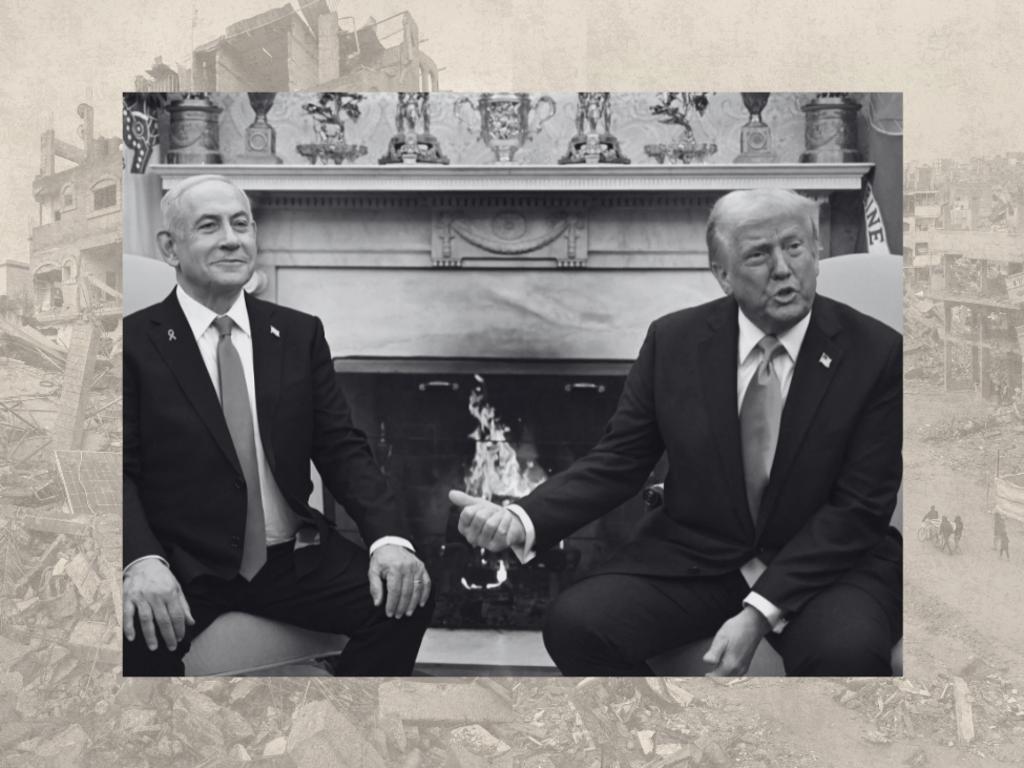



To join the conversation, please log in. Don't have an account? Register
Join the conversation, you are commenting as Logout